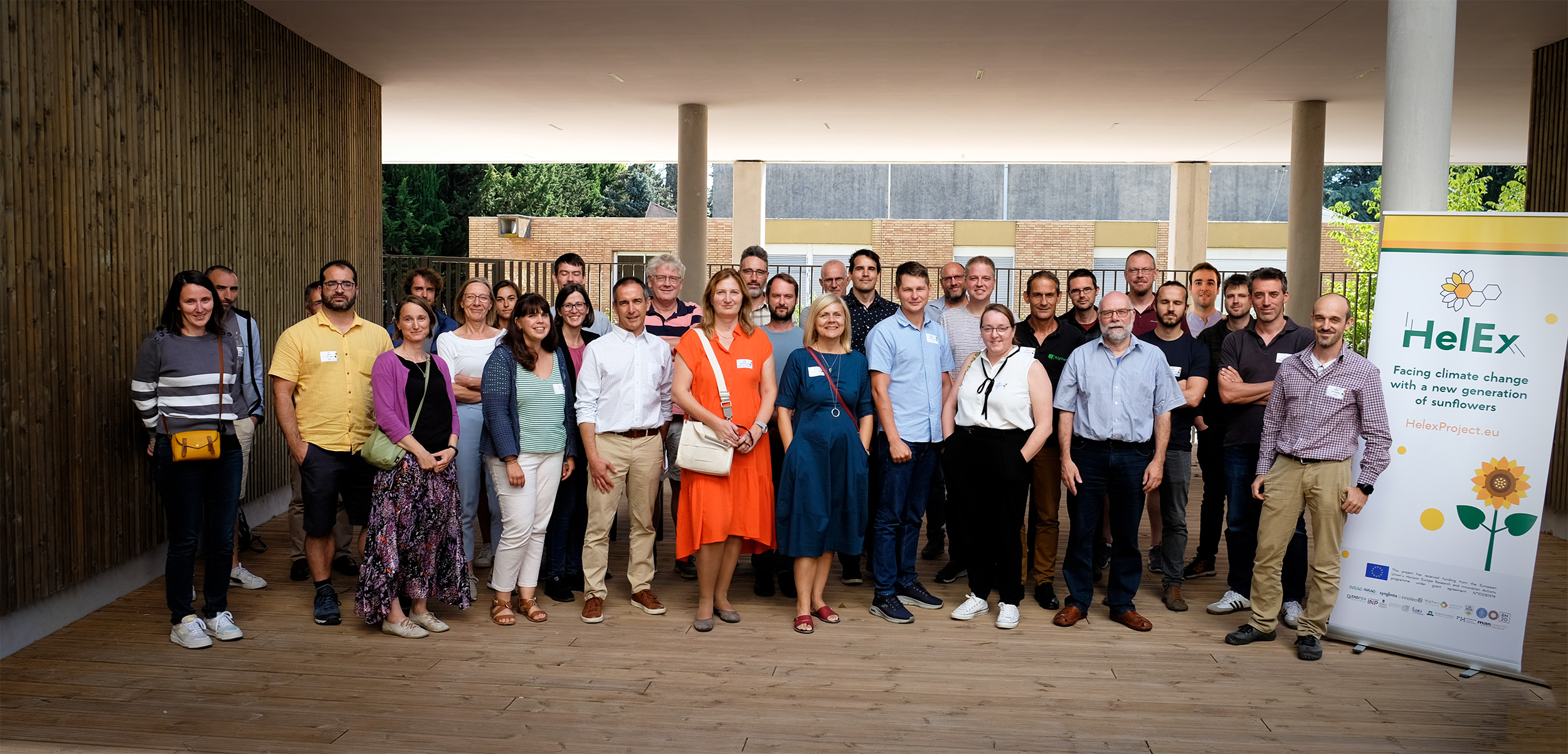Global collaboration of experts in ecology, economics, genetics, and biotechnology has formed an innovative consortium focused on sunflower research. The HelEx (Helianthus Extremophiles) project, comprising 18 partners, aims to develop sunflower varieties resilient to high temperatures and drought while preserving production quality and biodiversity services.
Climate change has severely impacted sunflower seed production, potentially reducing yields by 20% to 50% across Europe. In response, HelEx was launched, leveraging extremophilic wild Helianthus species to create climate-resilient sunflower varieties. The project that was initiated in May 2023 and kick-off meeting was hosted by the INRAE Occitanie-Toulouse Center from September 25-27. 2023, explores genetic variations in wild species to enhance agricultural production, conserve resources for pollinators, and promote biodiversity.
By sequencing the genomes of wild sunflower species and integrating beneficial genetic variations into cultivated sunflowers, HelEx aims to test their effectiveness in sustaining agricultural production, reducing water usage, and mitigating greenhouse gas emissions. The project also focuses on developing new breeding techniques, studying seed quality, and understanding transformation processes. Funded by the European Union and supported by Canada, this Horizon Europe program unites researchers, SMEs, and industry partners from nine countries for a transformative four-year initiative.
In a global landscape where Ukraine and Russia contribute significantly to sunflower production, this project offers groundbreaking solutions. By accelerating innovation and fostering resilient, ecological agriculture, HelEx not only addresses the challenges faced by sunflower cultivation but also reduces the European Union’s reliance on imported vegetable oils and proteins, promoting sustainable alternatives.


